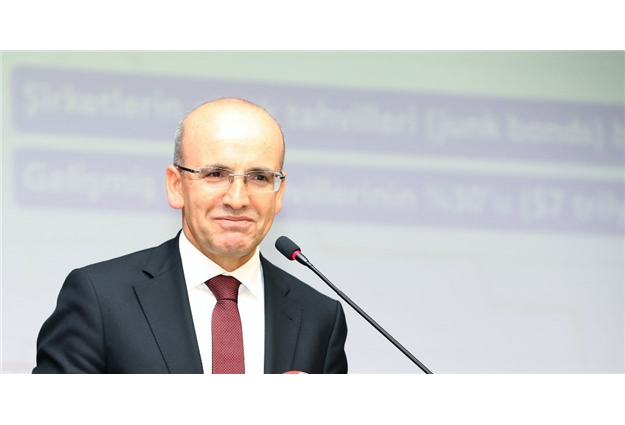
BURSA, Turkey
Turkey’s economy will return to the rates of growth it experienced before the 2008 financial crisis, Deputy Prime Minister Mehmet Simsek said Friday.
“Unfortunately, the world went into harsh times after the financial crisis, with many economic shocks,” he told an economic summit in Uludag, northwest Turkey.
“But this year the global economy is starting to recover itself.”
In the years before the 2008 crash, Turkey enjoyed GDP growth rates that reached 6 percent. Growth for last year is expected to be 2.6 percent.
Last year brought a number of unexpected events around the world, Simsek said, citing July’s attempted coup in Turkey, the Brexit vote and Donald Trump’s presidential victory in the U.S.
“Turkey's economy showed significant resistance to multidimensional global shocks,” he said. “This is, indeed, implying that the fundamentals of the Turkish economy are quite sound and strong.
“The global crisis and the European debt crisis affected us a lot because the European Union is an important trade partner for Turkey.”
High growth
The minister, who has special responsibility for the economy, said the Syrian war and other crises in the Middle East and North Africa, which he referred to as an “ice age”, had taken their toll on Turkey.
Despite these challenges, 7 million people had found jobs following the financial crisis. “This is a remarkable number but not enough because our unemployment rate is over 10 percent right now,” Simsek said.
However, the future appeared promising, he added. Turkey’s “huge resilience shows us that as the uncertainties are reduced, the Turkish economy will be on the track of high growth once again.”
Turning to reform, Simsek said the constitutional change proposed in the April 16 referendum was “the biggest [reform] to prevent upcoming crises.”
Pointing to the 65 governments Turkey has seen in its 103-year history, he said: “Unfortunately, with the parliamentary system we could not achieve administrative stability in Turkey. Constitutional reform will definitely provide stability for the economy.”
He dismissed claims that parliament would be rendered toothless under the proposals.
“It should be understood that the Grand National Assembly is going to function the way it is currently functioning,” he said. “It is not going to be hindered.”
Simsek also denied that the presidential system would threaten political and legal checks on executive power.